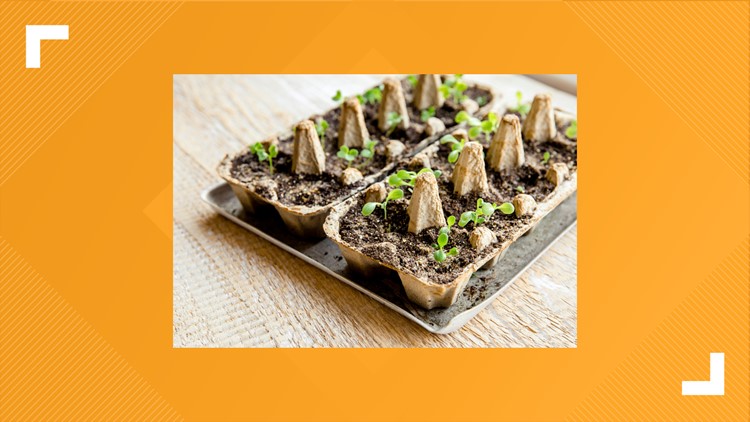GRAND RAPIDS, Mich. — Dietitian Grace Derocha from Blue Cross joined My West Michigan with some fun ideas on keeping the entire family busy while stuck at home.
Gardening is a recreational activity that doesn’t require new or expensive supplies to start. Common household items can be recycled and used to bring a variety of plants to life.
Homemade Compost
- Composting is a great way to enrich and fertilize soil without the addition of chemicals.
- It’s a mixture of decomposed organic material that can be found in or outside the home.
- Typical ingredients include:
- Coffee grounds
- Dry leaves
- Eggshells
- Fruit and vegetable scraps
- Grass clippings
- Shredded newspaper
- Twigs
Avoid the following:
- Citrus or onion peels
- Dairy products
- Dog or cat waste
- Meat
- Oil
- Sawdust from treated wood
- Seeds from produce
Homemade Pots and Cloches
- For pots, look to egg cartons, plastic veggie trays and paper cups.
- For cloches—plastic or glass coverings—use large water bottles, milk jugs or water coolers.
How to Save and Recycle Seeds
- Start with non-hybrid vegetable seeds from tomatoes, bell peppers and cucumbers.
- Remove seeds from vegetables that are ripe or from seed pods that are dry and cracked.
- Seeds must be washed and air-dried (for days or weeks depending on type), while others may need to soak for an extended period.
- Dry beans or peas can be planted immediately.
The Health Benefits of Gardening
- Exercise:
- Adults need to be active for at least 30 minutes a day and children for 60 minutes.
- Gardening is a creative way to meet both requirements.
- It’s also a known stress reliever that can be a positive and constructive outlet.
- Healthier/Affordable Food Options:
- People who grow food are more likely to eat their own produce instead of buying from a store.
- This can help to control costs and stay within budget.
- Less Pesticides and Fertilizers:
- Even though they target insects, fungi and weeds, certain pesticides can be harmful to the body.



